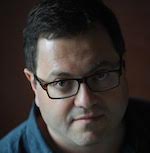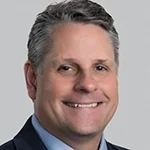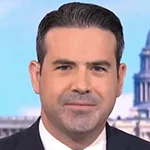 |
| Arkady Ostrovsky |
There is a sense of terror in Moscow as Vladimir Putin has put an undeclared state of martial law into place in the aftermath of his invasion of Ukraine, according to Arkady Ostrovsky, Russian and Eastern European correspondent for The Economist.
"Everybody is so tense," he told an Economist webinar on March 4. "People are being followed. Cars are being searched. It's like an inside junta has seized power."
Russian-born Ostrovsky, who has reported from Moscow for The Economist and Financial Times for nearly 20 years, has never seen the city so on edge and controlled by such a militaristic totalitarian regime.
He noted that Russians have become comfortable accepting the "Big Lie" spewed by the Kremlin's propaganda machine because they are afraid to challenge the government and just want to go on with their lives.
Since Putin has muzzled what was left of the free press, there's also a dearth of credible information outlets.
Ikea Shutdown is Big Psychological Blow
Ostrovsky, who left Moscow on March 3 for Istanbul, spoke about the huge impact Ikea's decision to close its stores and factories has had on the Russian people.
He said when Ikea first opened in Moscow in 2000, it symbolized that Russia was becoming a "normal European country."
The Swedish retailer was "more than just a shopping beacon, it was what the people wanted their country to be," said Ostrovsky, whose Moscow apartment was furnished by goods from Ikea.
The psychological impact of Ikea's shutting down signals to Russians that "Your Past Life is Gone," said Ostrovsky.
Ikea operates 17 retail facilities across Russia and employs 15K people in the country. Russians flocked to shop at Ikea following news of the shutdown.
"There will soon be nowhere to spend money," said Ostrovsky, who noted that Russia is heavily dependent on imported consumer goods.
Ostrovsky is the author of "The Invention of Russia: From Gorbachev's Freedom to Putin's War," which was published in 2017.
No Qualms About Using Nukes
Zanny Minton Beddoes, Economist editor-in-chief; Ed Carr, deputy editor; and Shashank Joshi, defense reporter, also participated in the webinar.
They praised the leadership of Ukraine president Volodymyr Zelensky and the will of the Ukrainian people to resist the Russian invaders.
Zelensky's decision to remain in Kyiv rather than flee the country inspired NATO members to get their acts together and coordinate policies.
Germany, for instance, dropped its policy that blocked the shipment of arms to Ukraine. At first, it only planned to ship helmets to Ukraine, which drew widespread scorn. The Germans also abandoned the notion that the way to "tame Russia is to embrace it."
Putin, the editors noted, is already "at war with NATO" and would be willing to attack ammunition dumps in Poland or Romania, if the flow of sophisticated weapons to Ukrainian fighters stalls the Russian invasion.
The Russian leader has no qualms about deploying tactical nuclear weapons. The editors said Putin views nuclear weapons as a license to be as aggressive as he wants to be, rather than a deterrent.
What is a likely "off-ramp" for Putin to defuse the Ukrainian crisis?
It was suggested that he is waiting for a phone call from Joe Biden to propose a peace conference, preferably at Yalta, where Roosevelt, Churchill and Stalin carved out the post-World War II world.


 Husch Blackwell Strategies has added FleishmanHillard alum Michael Slatin as a principal in its public affairs group.
Husch Blackwell Strategies has added FleishmanHillard alum Michael Slatin as a principal in its public affairs group. Rory Cooper, a veteran Republican operative and policy specialist, has joined Teneo’s Washington office as senior managing director in its strategy & communications practice.
Rory Cooper, a veteran Republican operative and policy specialist, has joined Teneo’s Washington office as senior managing director in its strategy & communications practice. Brian Fallon, who served as national press secretary for Hillary Clinton’s 2016 presidential run, is signing on next month as Vice President’s Kamala Harris’ campaign communications director.
Brian Fallon, who served as national press secretary for Hillary Clinton’s 2016 presidential run, is signing on next month as Vice President’s Kamala Harris’ campaign communications director. TikTok is nothing more than a Chinese propaganda tool that poses “a grave threat to America’s national security and, in particular, impressionable children and young adults,” say two Congressmen who want the platform registered as a foreign agent.
TikTok is nothing more than a Chinese propaganda tool that poses “a grave threat to America’s national security and, in particular, impressionable children and young adults,” say two Congressmen who want the platform registered as a foreign agent. Public Strategies Washington has added Abbie Sorrendino, a former aide to now Senate Majority Leader Chuck Schumer.
Public Strategies Washington has added Abbie Sorrendino, a former aide to now Senate Majority Leader Chuck Schumer.


 Have a comment? Send it to
Have a comment? Send it to 
Mar. 4, 2022, by Joe Honick
How can anyone at the moment believe anything, especially the idea a Joe Biden call to a peace conference? Putin may be nuts, but he is far from lacking the capacity for analysis, given his long intelligence background at the highest levels and what we have seen dealing with people like Trump who does not have that intellectual capacity. He could have moved with swift, smooth and relatively efficient overwhelming effort on Ukraine instead of what appears to be some sloppy bully type approach at a questionable season. Smart and tough as he is, Putin is also perhaps slightly confused by an America more than a little split despite a determined president.
People like Tucker Carlson have hardly helped and Trump's declaration of Vlad's "genius", and those are only the details we're privy to. All this renders Putin more dangerous and less rational.